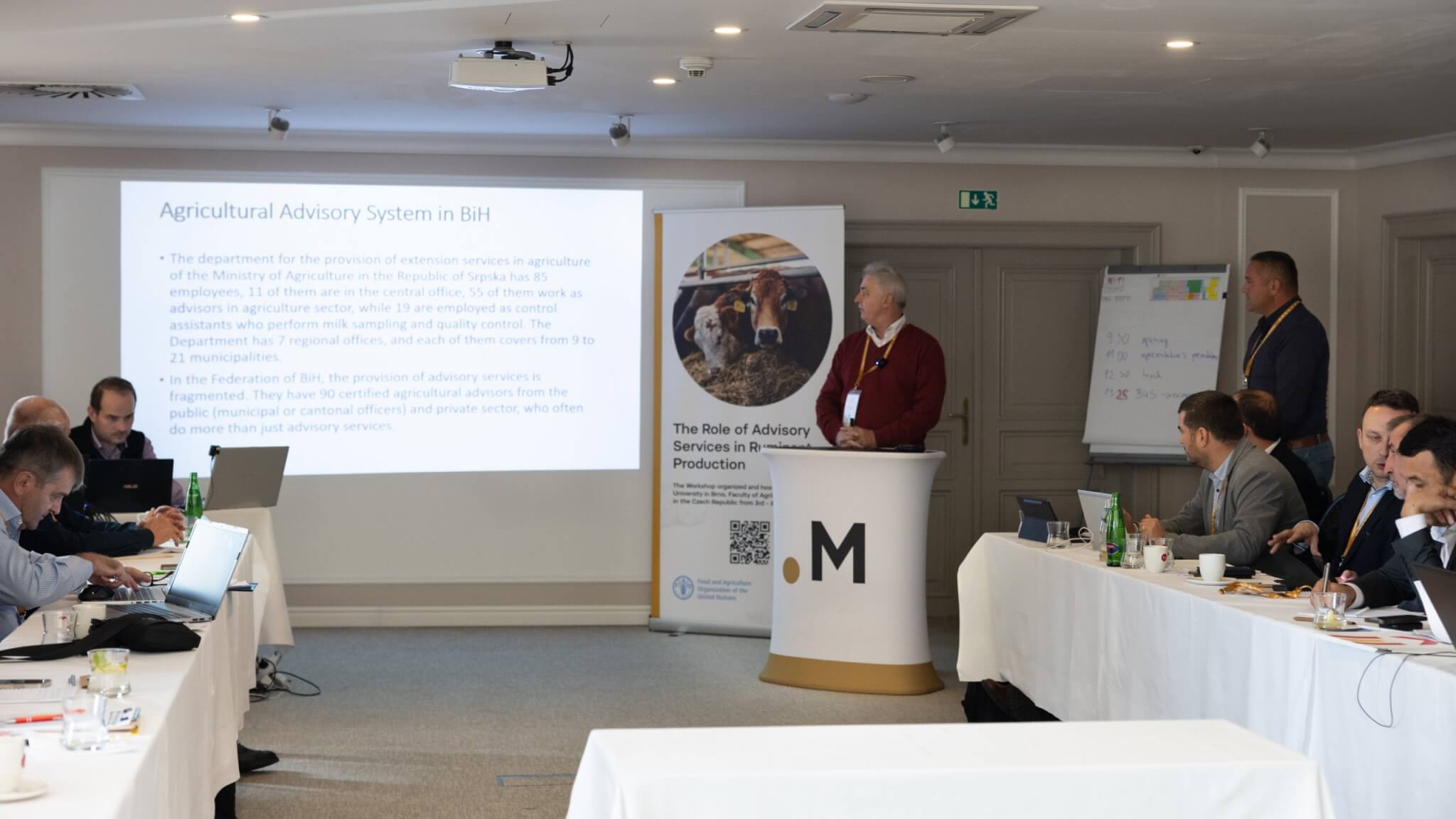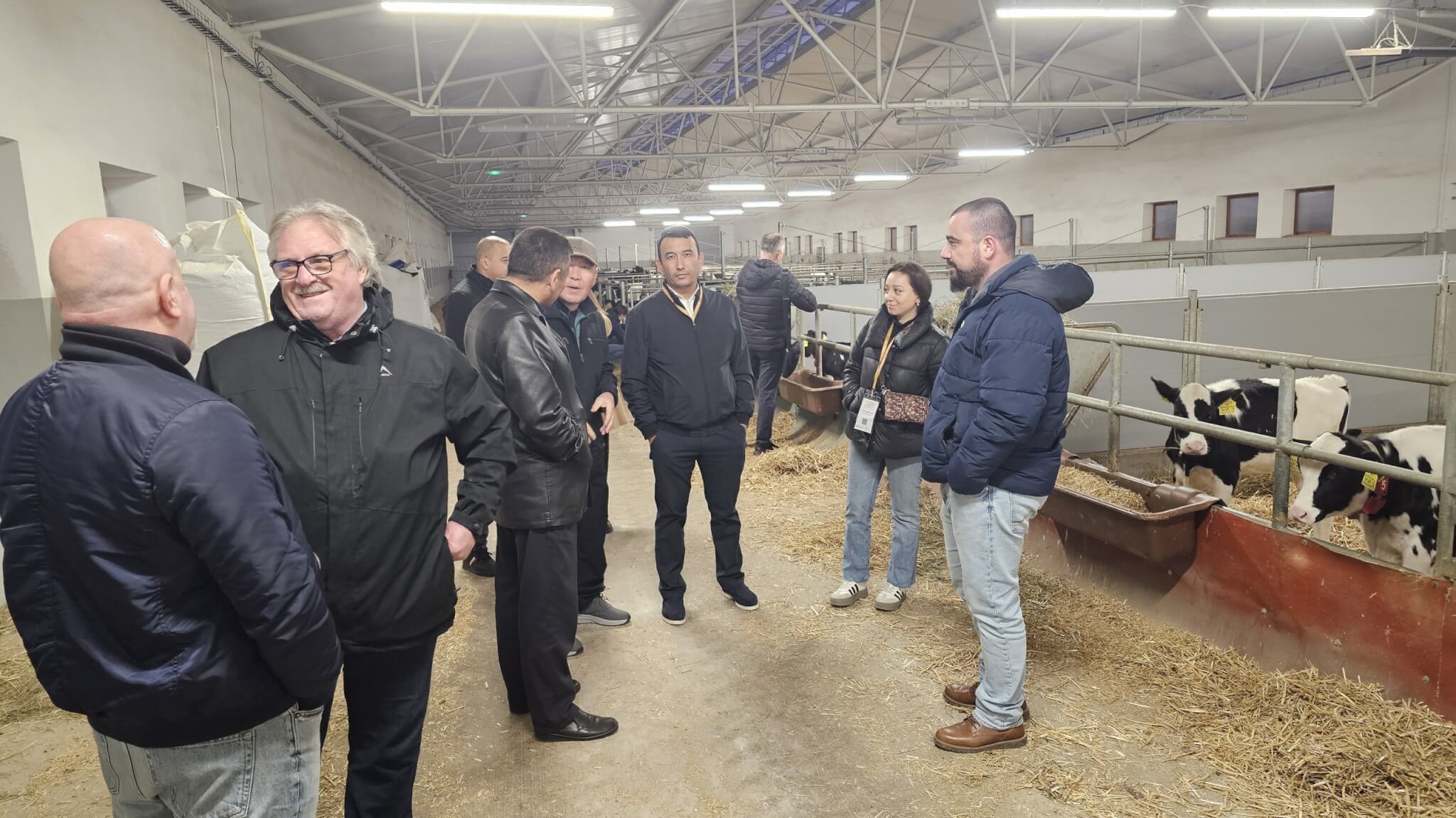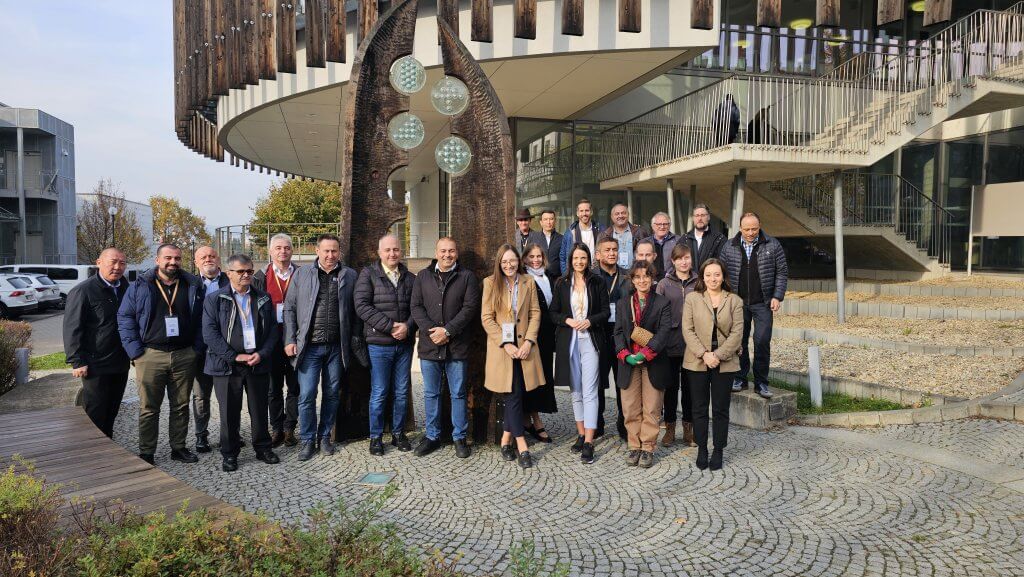


The workshop was organized by Mendel University in Brno, on behalf of the FAO, and was hosted by Mendel University in Brno, Faculty of AgriSciences in the Czech Republic from 3rd to 6th November 2024.
The overall objective of the workshop was to enhance collaborative efforts to improve advisory services for optimizing ruminant production, applying a mix of traditional knowledge and modern technology, and exchanging sustainable practices, policies, innovations, and lessons learned among stakeholders. The workshop also explored the tailoring of solutions that addressed local challenges and opportunities, offering a commitment to sustainable practices that enhanced both productivity and resilience in the ruminant farming sector.
The target audience of the workshop included advisory practitioners and officers, researchers/scientists, livestock farmers’ associations, and their representatives directly involved in ruminant production from selected countries of Europe, the Caucasus, and Central Asia. Nominated participants were from the Ministry or from relevant research institutions and other organizations. The workshop was conducted only in English; therefore, sufficient knowledge and use of the English language was a condition for participation.



Delegate perspectives on:
Matrix of topics
| Theme nr. | Primary topic | name | Focused topics | name |
| 1 | 1. Understanding the Ruminant Industry in Developing Countries. Question: Key challenges faced by ruminant farmers in this region. How can tailored advisory services address these challenges effectively? (PT1) (30min) | IB | 1.1 Farmer needs Assessment and Capability Mapping. (15 min). 1.2 Scaling Up Successful Interventions (15 min) | JO GV |
| 2 | 2. Strategic Development of Advisory Services. Question: How to develop a framework for advisory services that align with local farmers’ and stakeholders’ specific needs and behavior? (PT2) (30min) | JK | 2.1 Building Collaborative Networks and Partnerships (15min) | LA |
| 3 | Moderated interactive workshop session: 3. Implementation of Best Practices in Advisory Services. Question: What communication strategies and technologies can be employed to optimize advisory services? (PT4) (30min) | Moderator FL | 3.1 Farm Economic Analysis and Literacy communication (15 min). 3.2 Climate Resilience and Sustainable Practices (15 min). | ŽV MU |
| 4 | 4. Policy Development for Sustainable Advisory Services. Question: Supportive current policies? How to advocate for policy changes that support sustainable advisory practices? (PT3) (30min) | MM | 4.1 Monitoring and Evaluation of Advisory Programs (15 min) 4.2 Management communication strategies and technologies to enhance the effectiveness of advisory services. (15 min) | TSz KK |